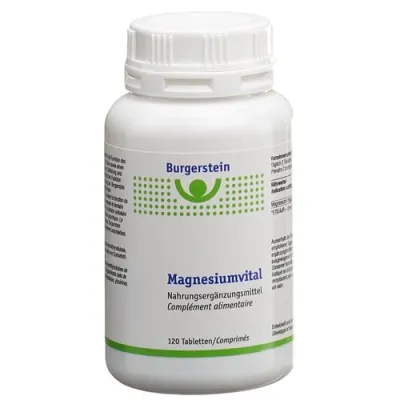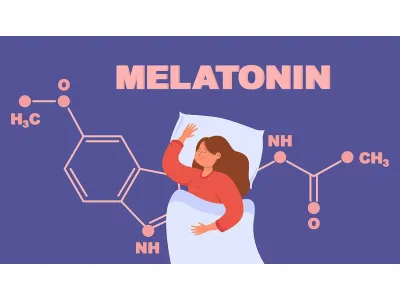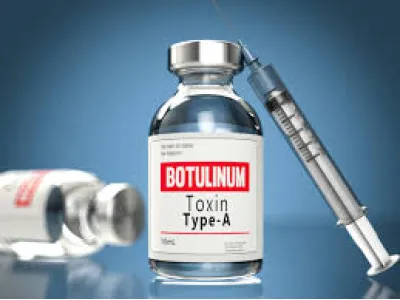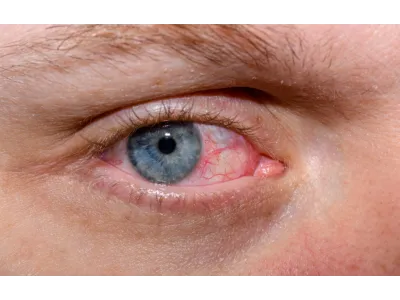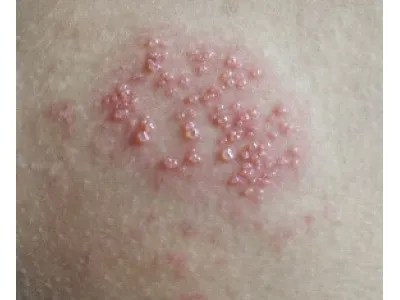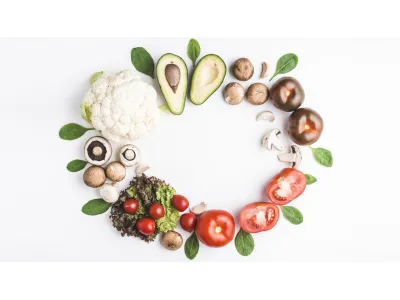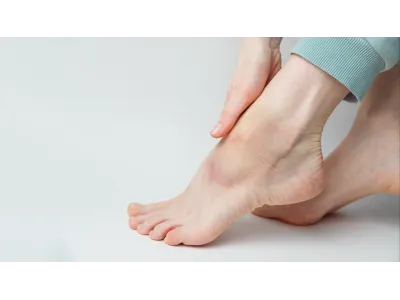Circulatory Harmony: Combating Excess Vascular Heat and Its Discomforts

Excessive vascular heat, characterized by a feeling of warmth, is regularly observed through visible redness of the skin, and is a sign of physiological imbalance. But there are herbal preparations and dietary supplements that support natural methods of thermoregulation and vascular health.
Vasodilation: a feeling of warmth in the blood vessels
Vasodilation refers to the widening of blood vessels, a bodily function that increases blood flow and reduces blood pressure, its process results in a sensation of warmth in the blood vessels, along with hyperemia, or skin redness.
Vasodilation occurs when the smooth muscles of the walls of arteries and arterioles relax and dilate blood vessels. The diameter of the blood vessels increases and more blood passes through them. The sensation of heat associated with dilation of blood vessels is primarily caused by increased blood flow to the surface of the skin. When blood vessels dilate, more warm blood is drawn toward the surface of the skin, dissipating heat from the body into the environment and creating a feeling of warmth.
Hyperemia or increased blood flow to certain areas of the body leads to visible reddening of the skin. This is due to the fact that capillaries, the smallest blood vessels, are filled with blood more than usual. The effect is observed after training or as a response to temperature changes. Although hyperemia is a short-term and benign condition, it can also be a signal of underlying health problems.
Common Causes of Excessive Vasodilation
Excessive vasodilatation, characterized by a feeling of warmth and redness of the skin, is the result of various internal and external triggers. Although vasodilation is a natural physiological response to increase blood flow and dissipate heat, excessive vasodilation is uncomfortable and sometimes indicates a health problem.
- Hormonal fluctuations: is one of the most prominent causes of excessive vasodilation, especially associated with the menstrual cycle, pregnancy or menopause. During this period, changes in the level of estrogen affect the regulation of the expansion of blood vessels. For example, hot flashes that occur during menopause are directly related to sudden, excessive vasodilation, which leads to intense heat and sweating.
- Stress: both physical and emotional, also provokes excessive expansion of blood vessels. The body's response to stress includes the release of various hormones, in particular adrenaline, which causes dilation of blood vessels. Although this is part of the body's fight-or-flight response, designed to improve blood flow and oxygen delivery during stressful situations, it also results in uncomfortable feelings of heat and visible redness.
- Inflammation: The body's natural response to injury or infection, causing local vasodilation as part of the healing process. Increased blood flow to the affected area facilitates the delivery of immune cells and nutrients necessary for recovery. However, the systemic inflammation that occurs in certain autoimmune diseases or infections leads to widespread vasodilation and a general feeling of warmth.
- Environmental factors: External conditions, such as high temperatures or sudden changes in weather, also provoke excessive vasodilation as the body tries to regulate its internal temperature. Being in a hot environment or engaging in intense physical activity in warm conditions can lead to increased blood flow to the surface of the skin to release excess heat through sweating and radiation.
Combating Excessive Vasodilation with Herbal Remedies
Herbal remedies and dietary supplements help manage symptoms associated with vasodilation. One popular herbal supplement is Padma 28, which is used for excess heat in the vascular system (increased Tripa principle) accompanied by impaired circulation with symptoms such as tingling, heaviness and tension in the legs and arms when falling asleep, and leg cramps. The application of Padma 28n is based exclusively on the therapeutic principles of Tibetan medicine.
Padma 28 n 200 capsules
Tibetan medicineWhen is Padma 28 N used?According to the therapeutic principles of Tibetan medicine, Padma 28 N can be used for excess heat in the vascular system (increased Tripa principle), which is accompanied by circulatory disorders with symptoms such as tingling, pins and needles, feeling of heaviness and tension in the legs and arms, hands and feet falling asleep and leg cramps.The use of this medicine in the specified area of application is based exclusively on the therapeutic principles of Tibetan medicine.What precautions should be taken?People under medical treatment should inform their doctor if they are taking Padma 28 N. If your condition worsens, you should consult a doctor!An unbalanced or high-fat diet, smoking, stress and lack of exercise can worsen the symptoms and should be avoided.When should Padma 28 N, hard capsules not be used or only used with caution?Padma 28 N must not be taken if you are known to be hypersensitive to one of the active ingredients or one of the excipients (see “What is contained in Padma 28 N?”).There are no studies on the use of Padma 28 N in children and adolescents. The use in children and adolescents is therefore not recommended.Tell your doctor, pharmacist or druggist if yousuffer from other illnesses,Have allergies ortake other medicines (including those you bought yourself!).Can Padma 28 N be taken during pregnancy or while breastfeeding?Based on previous experience, there is no known risk to the child when used as directed. However, systematic scientific studies were never carried out. As a precaution, you should avoid taking medicines if possible during pregnancy and breastfeeding or ask your doctor, pharmacist or druggist for advice.How do you use Padma 28 N?Adults: Unless otherwise prescribed by your doctor, initially take 3x2 capsules daily with enough liquid before or with meals. As soon as there is a significant improvement, the dosage can be reduced to 1-2 capsules daily. People who have difficulty swallowing should slurry the capsule contents in lukewarm water. If gastrointestinal problems occur, the capsules can be taken with meals with plenty of liquid (preferably lukewarm water). A dose reduction may be necessary. If you have been prescribed the capsules by your doctor, a dosage adjustment should be discussed with him or her. Leave an interval of one and a half to two hours between taking Padma 28 N and other medicines.Children and adolescents: The use and safety of Padma 28 N in children and adolescents has not yet been tested and is not intended due to the indication.Stick to the dosage stated in the package leaflet or prescribed by your doctor. If you think the medicine is too weak or too strong, talk to your doctor, pharmacist or druggist.What side effects can Padma 28 N have?Very rarely, gastrointestinal complaints (eg diarrhea, nausea, abdominal pain or belching), skin rashes or itching can occur. In people with a corresponding predisposition, palpitations and slight restlessness were occasionally noted.If you notice any side effects, contact your doctor, pharmacist or druggist. This applies in particular to side effects that are not stated in this leaflet.What should also be noted?The medicine may only be used until the date marked “EXP” on the container.Storage instructionsStore at room temperature (15-25°C).Store in the original packaging.Keep out of reach of CHILDREN.Your doctor, pharmacist or druggist can provide you with further information. These people have the detailed information for specialists.What is included in Padma 28 N?Active ingredientsOne capsule contains:40 mg Himalayan cleft root powder (Saussurea costus (Falc.) Lipsch., radix), 40 mg Icelandic moss powder (Cetraria islandica (L.) Acharius sl, thallus), 35 mg neem tree fruit powder (Azadirachta indica A.Juss. , fructus), 30 mg cardamom fruit powder (Elettaria cardamomum (L.) Maton, fructus), 30 mg myrobalan fruit powder (Terminia chebula Retz., fructus), 25 mg clove pepper powder (Pimenta dioica (L.) Merr., fructus), 20 mg marmelos fruit powder (Aegle marmelos (L.) Corrêa, fructus), 20 mg calcium sulfate hemihydrate, 15 mg columbine herb powder (Aquilegia vulgaris L., herba), 15 mg licorice root powder (Glycyrrhiza glabra L. and/or Glycyrrhiza inflata Bat. and/or Glycyrrhiza uralensis Fisch., radix), 15 mg ribwort plantain leaf powder (Plantago lanceolata L. sl, folium), 15 mg knotweed herb powder (Polygonum aviculare L. sl, herba), 15 mg gold cinquefoil powder (Potentilla aurea L., herba), 12 mg clove powder (Syzygium aromaticum (L.) Merr. & LMPerry, flos), 10 mg Kaempferia galanga rhizome powder (Kaempferia galanga L., rhizoma), 10 mg sida herb powder (Sida cordifolia L., herba), 10 mg valerian root powder ( Valeriana officinalis L. sl , radix), 6 mg lettuce powder ( Lactuca sativa var. capitata L., folium), 5 mg marigold flower powder (Calendula officinalis L., flos cum calyce), 4 mg d-camphor, 1 mg monkshood tuber powder (Aconitum napellus L., tuber).ExcipientsHypromellose (capsule shell), colloidal silicon dioxide, mannitol (E 421).Approval number67540 (Swissmedic)Where can you get Padma 28 N? Which packs are available?In pharmacies and drugstores, without medical prescription.Packs of 60, 200 and 540 capsules.Authorization holderPADMA AG , Haldenstrasse 30, CH-8620 Wetzikon.ManufacturerPADMA AG , Haldenstrasse 30, CH-8620 Wetzikon...
183.59 USD
Padma 28 ingredients: contains Himalayan split root powder, Icelandic moss powder, neem tree fruit, cardamom fruit, myrobalan fruit, clove pepper powder, marmelos fruit, plantain leaf powder and many other medicinal herbs.
Application of original Padma 28: it is recommended to take 3x2 capsules a day with a sufficient amount of liquid before or during meals. As soon as there is a significant improvement, the dosage can be reduced to 1-2 capsules per day. People who have difficulty swallowing should dissolve the contents of the capsule in warm water. In case of problems with the gastrointestinal tract, capsules can be taken during meals, drinking a sufficient amount of liquid (preferably warm water). Also between taking padma28
Padma 28 n 60 capsules
Tibetan medicineWhen is Padma 28 N used?According to the therapeutic principles of Tibetan medicine, Padma 28 N can be used for excess heat in the vascular system (increased Tripa principle), which is accompanied by circulatory disorders with symptoms such as tingling, pins and needles, feeling of heaviness and tension in the legs and arms, hands and feet falling asleep and leg cramps.The use of this medicine in the specified area of application is based exclusively on the therapeutic principles of Tibetan medicine.What precautions should be taken?People under medical treatment should inform their doctor if they are taking Padma 28 N. If your condition worsens, you should consult a doctor!An unbalanced or high-fat diet, smoking, stress and lack of exercise can worsen the symptoms and should be avoided.When should Padma 28 N, hard capsules not be used or only used with caution?Padma 28 N must not be taken if you are known to be hypersensitive to one of the active ingredients or one of the excipients (see “What is contained in Padma 28 N?”).There are no studies on the use of Padma 28 N in children and adolescents. The use in children and adolescents is therefore not recommended.Tell your doctor, pharmacist or druggist if yousuffer from other illnesses,Have allergies ortake other medicines (including those you bought yourself!).Can Padma 28 N be taken during pregnancy or while breastfeeding?Based on previous experience, there is no known risk to the child when used as directed. However, systematic scientific studies were never carried out. As a precaution, you should avoid taking medicines if possible during pregnancy and breastfeeding or ask your doctor, pharmacist or druggist for advice.How do you use Padma 28 N?Adults: Unless otherwise prescribed by your doctor, initially take 3x2 capsules daily with enough liquid before or with meals. As soon as there is a significant improvement, the dosage can be reduced to 1-2 capsules daily. People who have difficulty swallowing should slurry the capsule contents in lukewarm water. If gastrointestinal problems occur, the capsules can be taken with meals with plenty of liquid (preferably lukewarm water). A dose reduction may be necessary. If you have been prescribed the capsules by your doctor, a dosage adjustment should be discussed with him or her. Leave an interval of one and a half to two hours between taking Padma 28 N and other medicines.Children and adolescents: The use and safety of Padma 28 N in children and adolescents has not yet been tested and is not intended due to the indication.Stick to the dosage stated in the package leaflet or prescribed by your doctor. If you think the medicine is too weak or too strong, talk to your doctor, pharmacist or druggist.What side effects can Padma 28 N have?Very rarely, gastrointestinal complaints (eg diarrhea, nausea, abdominal pain or belching), skin rashes or itching can occur. In people with a corresponding predisposition, palpitations and slight restlessness were occasionally noted.If you notice any side effects, contact your doctor, pharmacist or druggist. This applies in particular to side effects that are not stated in this leaflet.What should also be noted?The medicine may only be used until the date marked “EXP” on the container.Storage instructionsStore at room temperature (15-25°C).Store in the original packaging.Keep out of reach of CHILDREN.Your doctor, pharmacist or druggist can provide you with further information. These people have the detailed information for specialists.What is included in Padma 28 N?Active ingredientsOne capsule contains:40 mg Himalayan cleft root powder (Saussurea costus (Falc.) Lipsch., radix), 40 mg Icelandic moss powder (Cetraria islandica (L.) Acharius sl, thallus), 35 mg neem tree fruit powder (Azadirachta indica A.Juss. , fructus), 30 mg cardamom fruit powder (Elettaria cardamomum (L.) Maton, fructus), 30 mg myrobalan fruit powder (Terminia chebula Retz., fructus), 25 mg clove pepper powder (Pimenta dioica (L.) Merr., fructus), 20 mg marmelos fruit powder (Aegle marmelos (L.) Corrêa, fructus), 20 mg calcium sulfate hemihydrate, 15 mg columbine herb powder (Aquilegia vulgaris L., herba), 15 mg licorice root powder (Glycyrrhiza glabra L. and/or Glycyrrhiza inflata Bat. and/or Glycyrrhiza uralensis Fisch., radix), 15 mg ribwort plantain leaf powder (Plantago lanceolata L. sl, folium), 15 mg knotweed herb powder (Polygonum aviculare L. sl, herba), 15 mg gold cinquefoil powder (Potentilla aurea L., herba), 12 mg clove powder (Syzygium aromaticum (L.) Merr. & LMPerry, flos), 10 mg Kaempferia galanga rhizome powder (Kaempferia galanga L., rhizoma), 10 mg sida herb powder (Sida cordifolia L., herba), 10 mg valerian root powder ( Valeriana officinalis L. sl , radix), 6 mg lettuce powder ( Lactuca sativa var. capitata L., folium), 5 mg marigold flower powder (Calendula officinalis L., flos cum calyce), 4 mg d-camphor, 1 mg monkshood tuber powder (Aconitum napellus L., tuber).ExcipientsHypromellose (capsule shell), colloidal silicon dioxide, mannitol (E 421).Approval number67540 (Swissmedic)Where can you get Padma 28 N? Which packs are available?In pharmacies and drugstores, without medical prescription.Packs of 60, 200 and 540 capsules.Authorization holderPADMA AG , Haldenstrasse 30, CH-8620 Wetzikon.ManufacturerPADMA AG , Haldenstrasse 30, CH-8620 Wetzikon...
87.96 USD
and other medicines, observe an interval of one and a half to two hours.
Also, there are other herbal remedies for the treatment of vasodilation:
- Green tea: For helping manage vasodilation recommendation is rich in antioxidants tea, it contains catechins, which have been shown to support blood vessel health. Low caffeine content also helps to constrict blood vessels and reduce excessive heat and redness.
- Hawthorn Berries: Traditionally used for heart health, hawthorn berries improve blood vessel function and circulation. Its flavonoids and proanthocyanidins are believed to strengthen blood vessel walls, supporting a balanced vasodilator response.
- Ginger: Promotes blood circulation while helping to stabilize blood vessel dilation, making it a useful remedy for reducing excessive heat.
- Magnesium supplements: Magnesium helps regulate blood pressure and blood vessel dilation. Magnesium deficiency, in turn, leads to excessive vasodilation, so supplementation helps maintain a healthy vascular response. Dietary supplement Burgerstein Magnesium has a relaxing effect on all muscle groups. Magnesium supplements support the functioning of the nervous system and muscles, as well as regulate blood pressure.
Burgerstein magnesium vital tablets can 120 pcs
Burgerstein Magnesiumvital is a food supplement with a relaxing effect on the entire musculature. Magnesium fulfils many important tasks in the metabolism. On the one hand it supports the function of the nervous system and the muscles, on the other hand it is important for healthy bones and teeth. In addition, this trace element ensures a balanced electrolyte balance and contributes to a normal energy metabolism. Contributes to the normal maintenance of bones and teethContributes to normal functioning of the nervous systemWithout artificial flavoursGluten freeLactose freeVegan Application It is recommended to take 2 Burgerstein Magnesiumvital tablets daily with some liquid. Ingredients Magnesium citrate, magnesium bisglycinate, fillers (cross-linked sodium carboxymethylcellulose, hydroxypropylmethylcellulose, silicon dioxide), anti-caking agents (magnesium salts of fatty acids, talc), coating agents (hydroxypropylmethylcellulose, glycerol)...
70.06 USD
Choose quality supplements from proven sources and watch recommended dosages to avoid possible side effects. Also, reduce stress, avoid hot environments and foods with a lot of spices.
Disclaimer: The article contains information about vasodilation and natural dietary supplements for symptom relief and does not constitute medical advice. Always consult a doctor with questions about your health.
P. Kern


